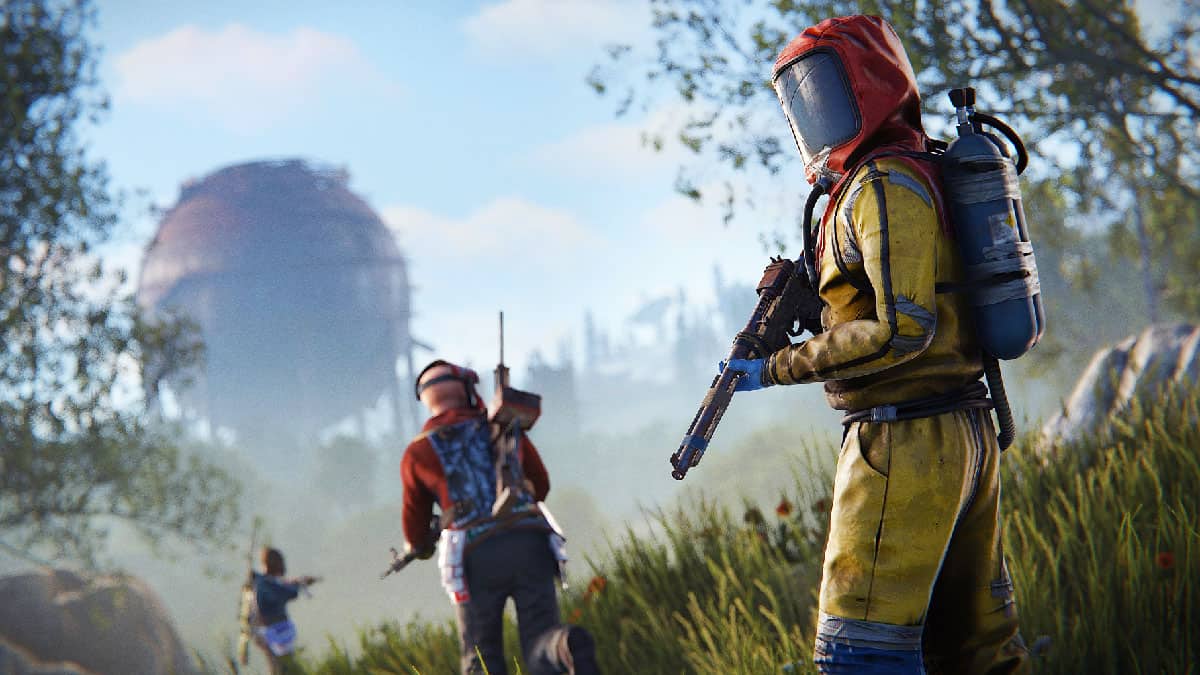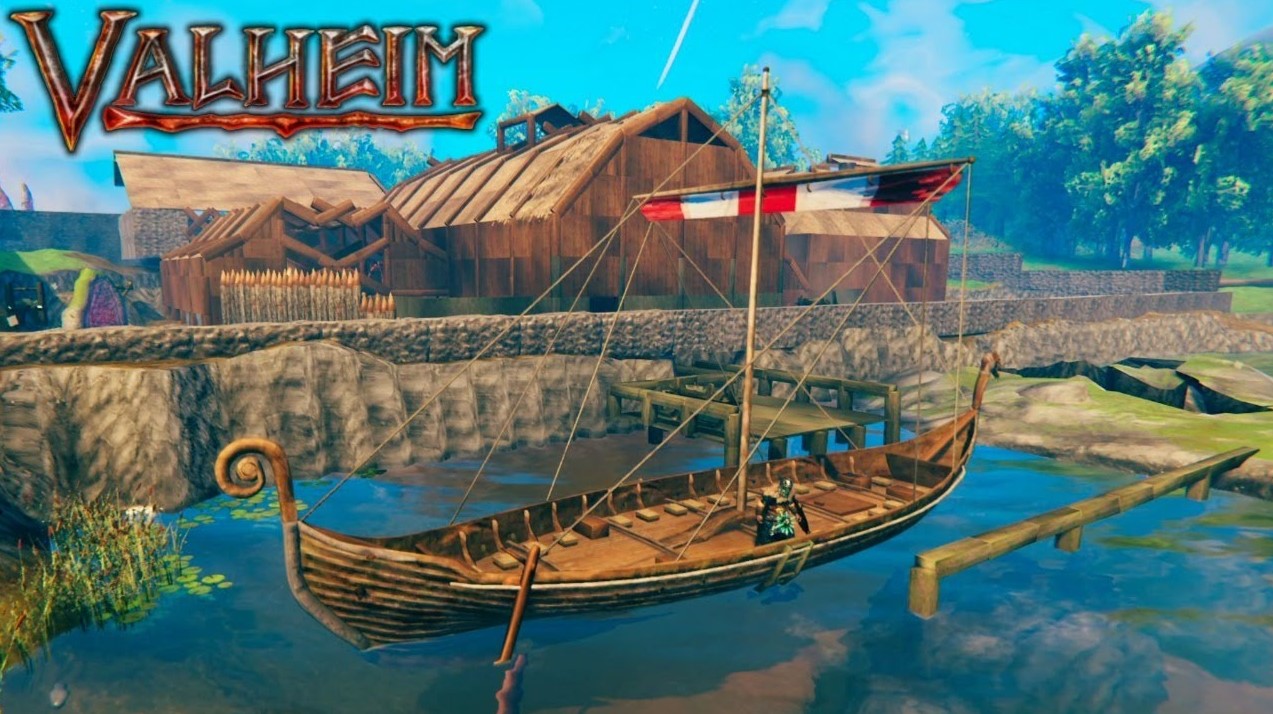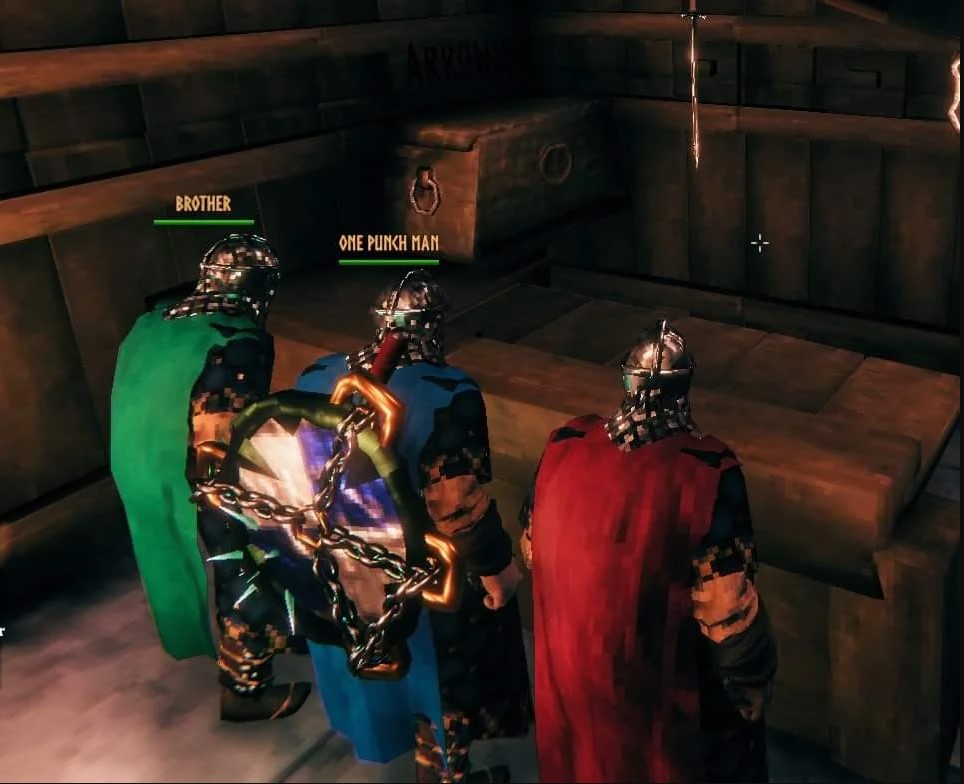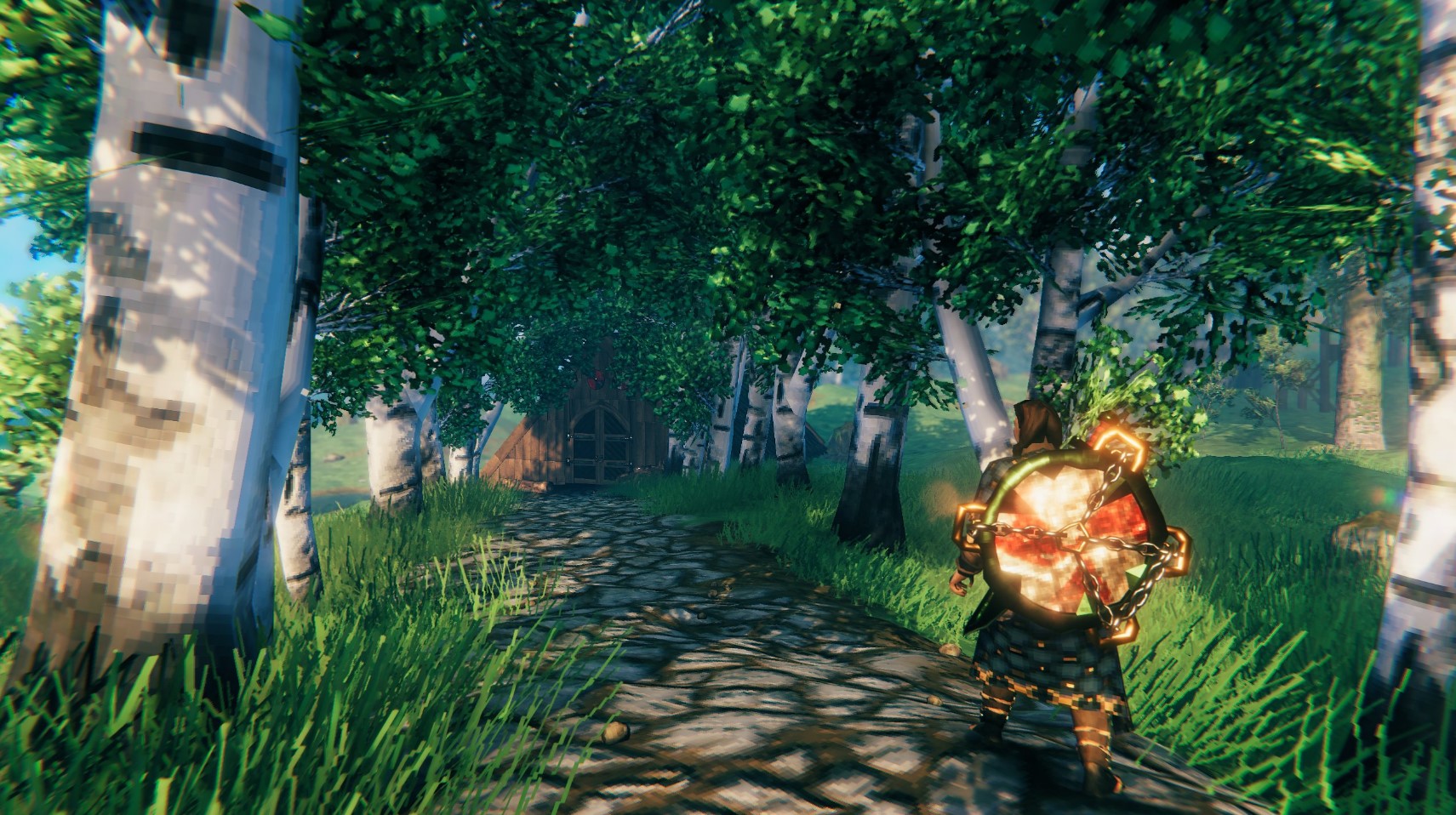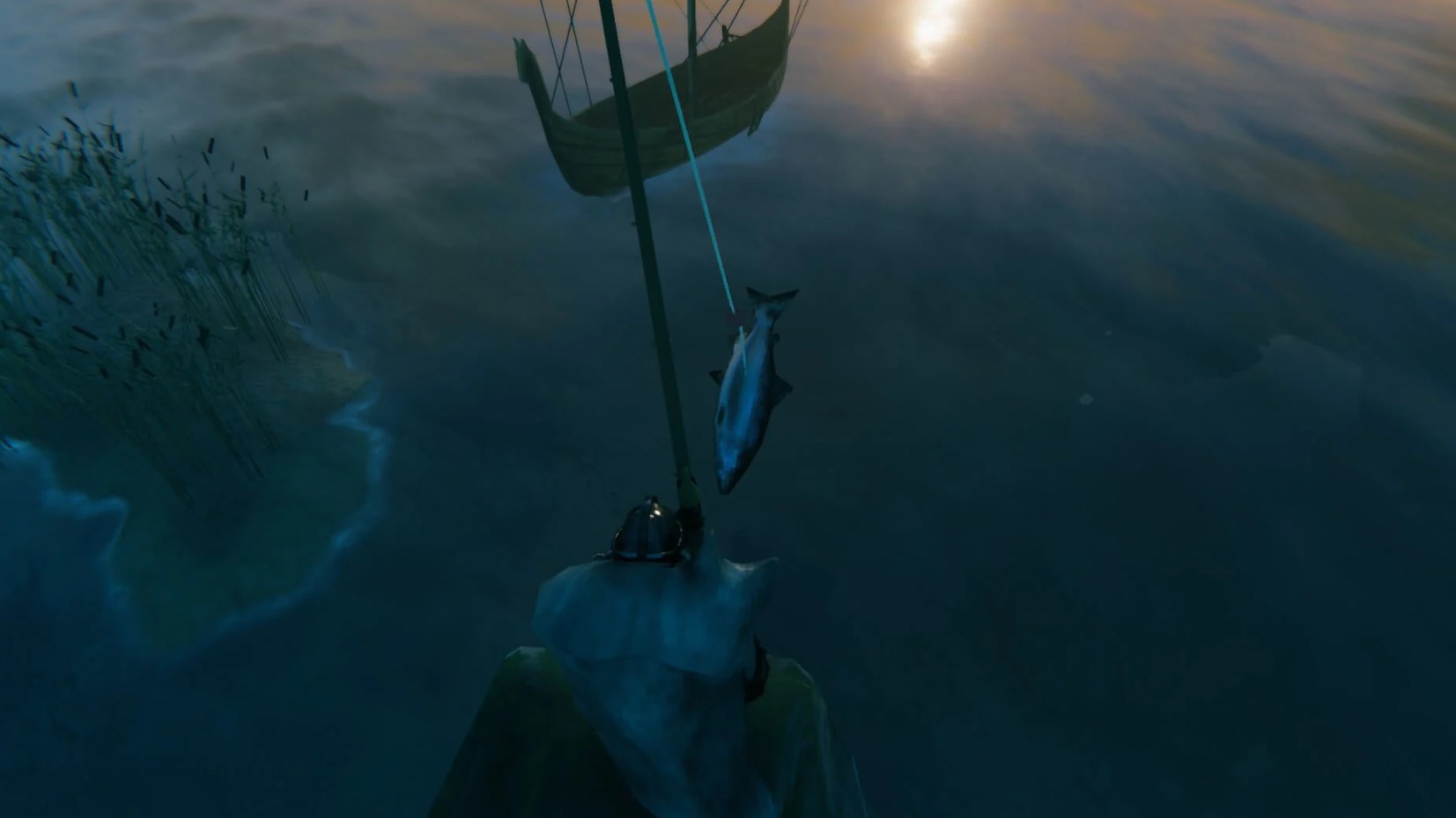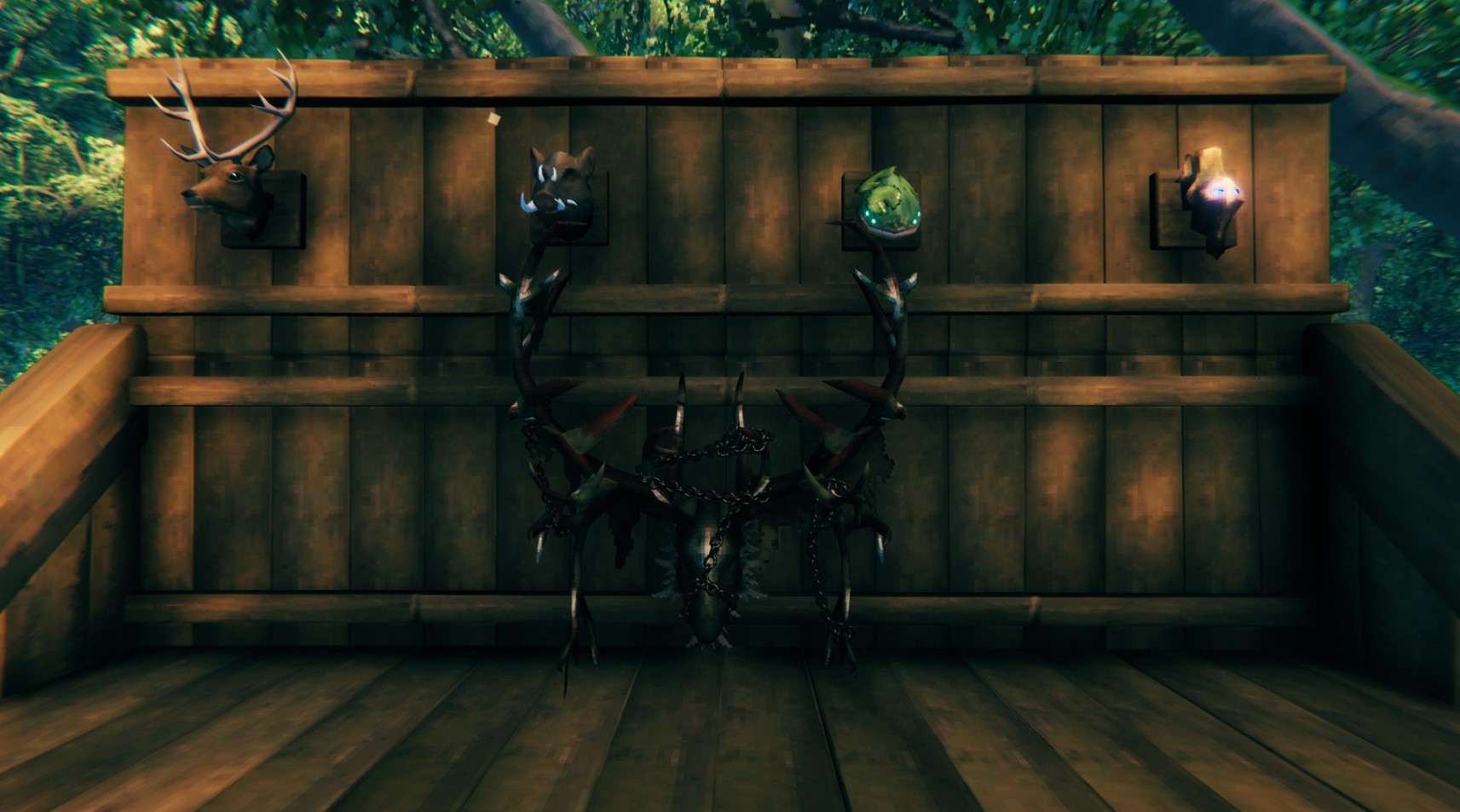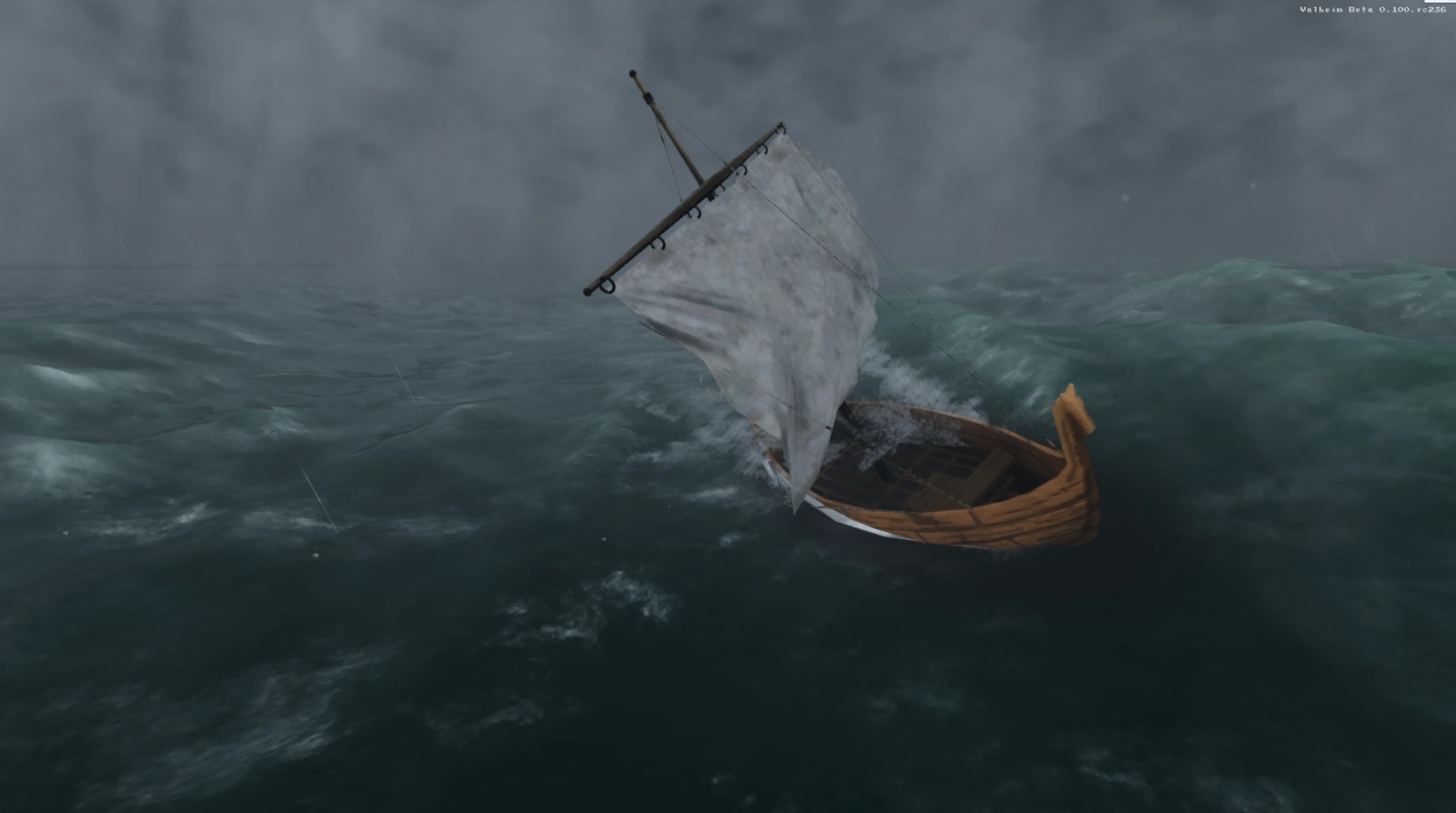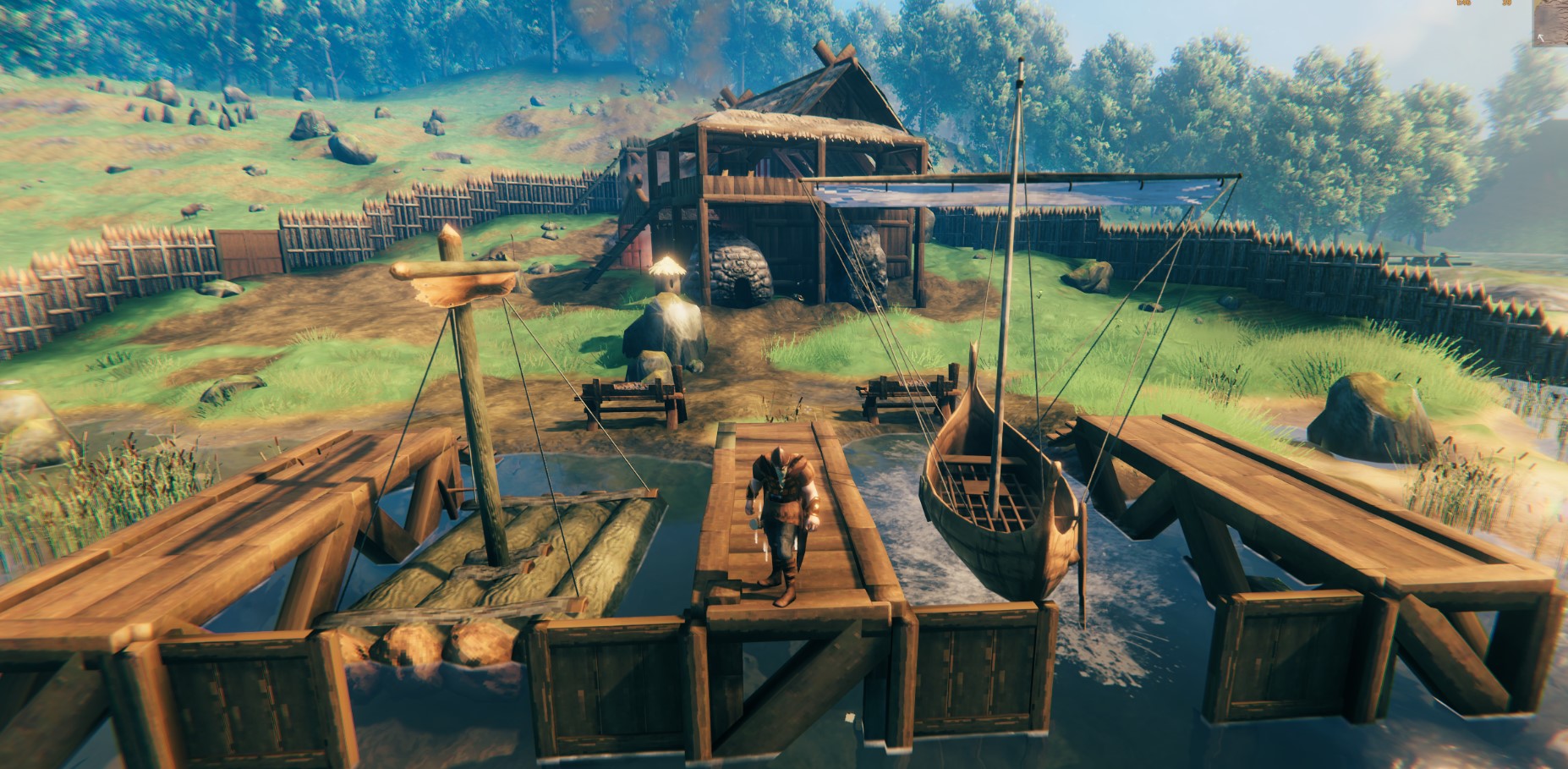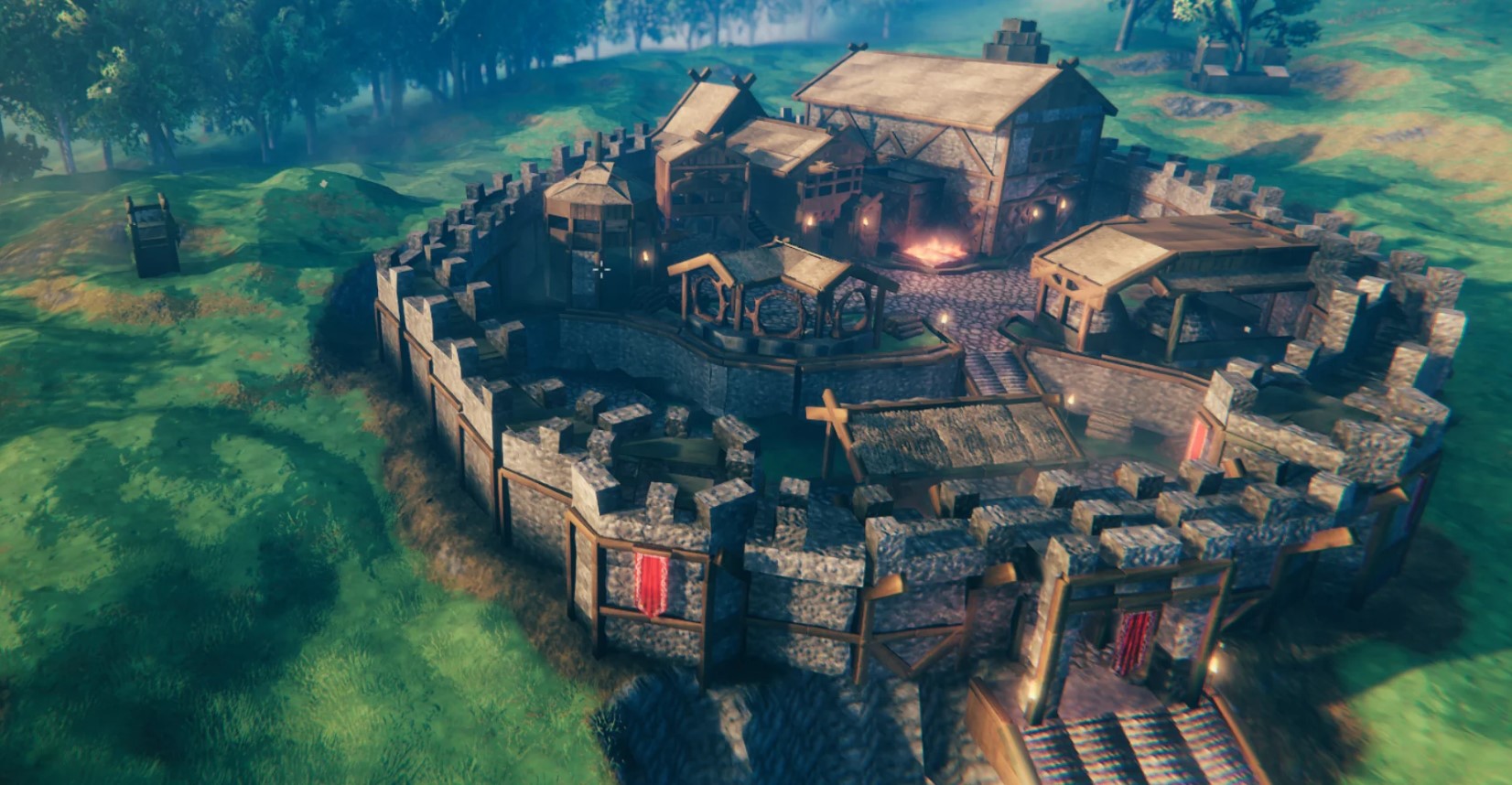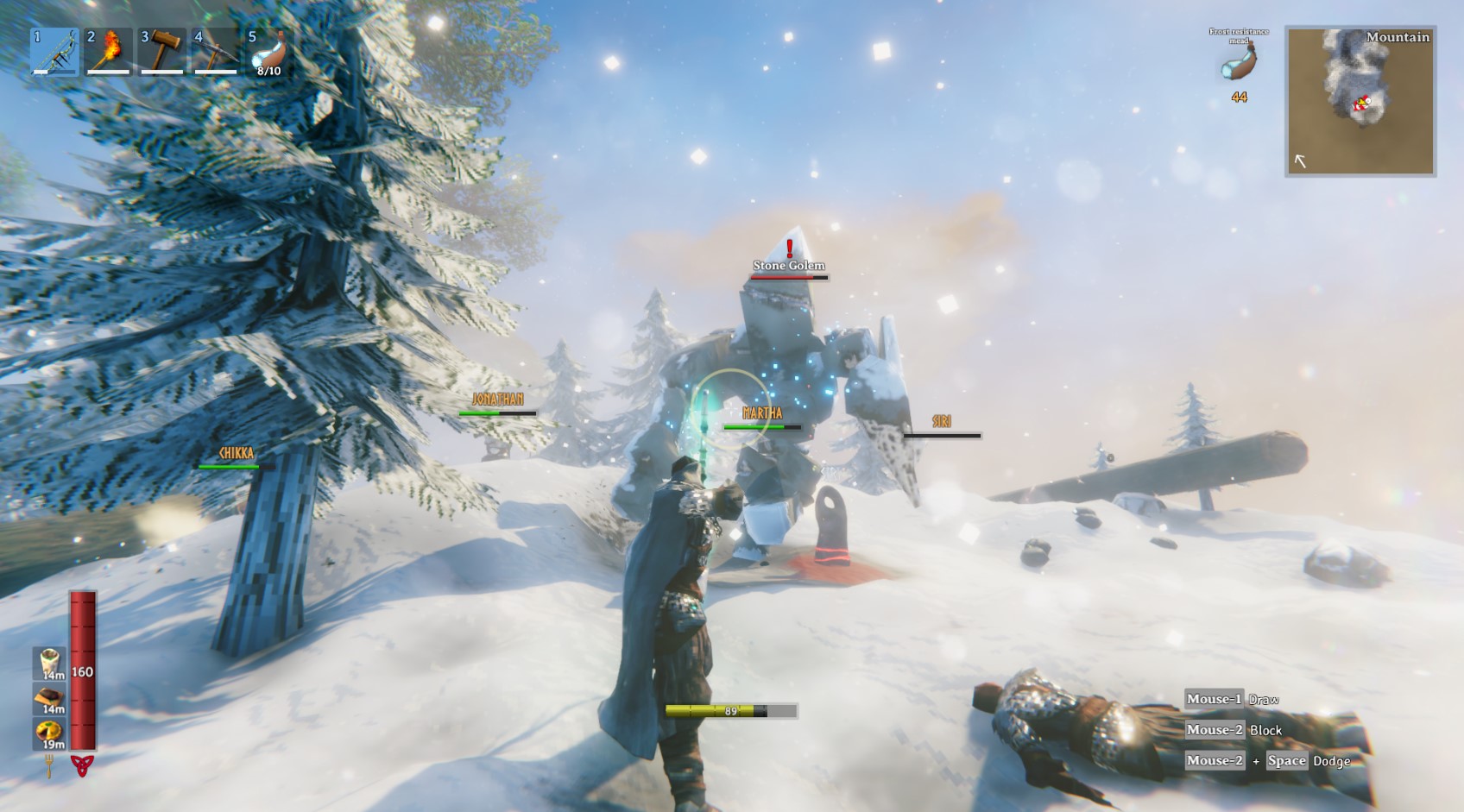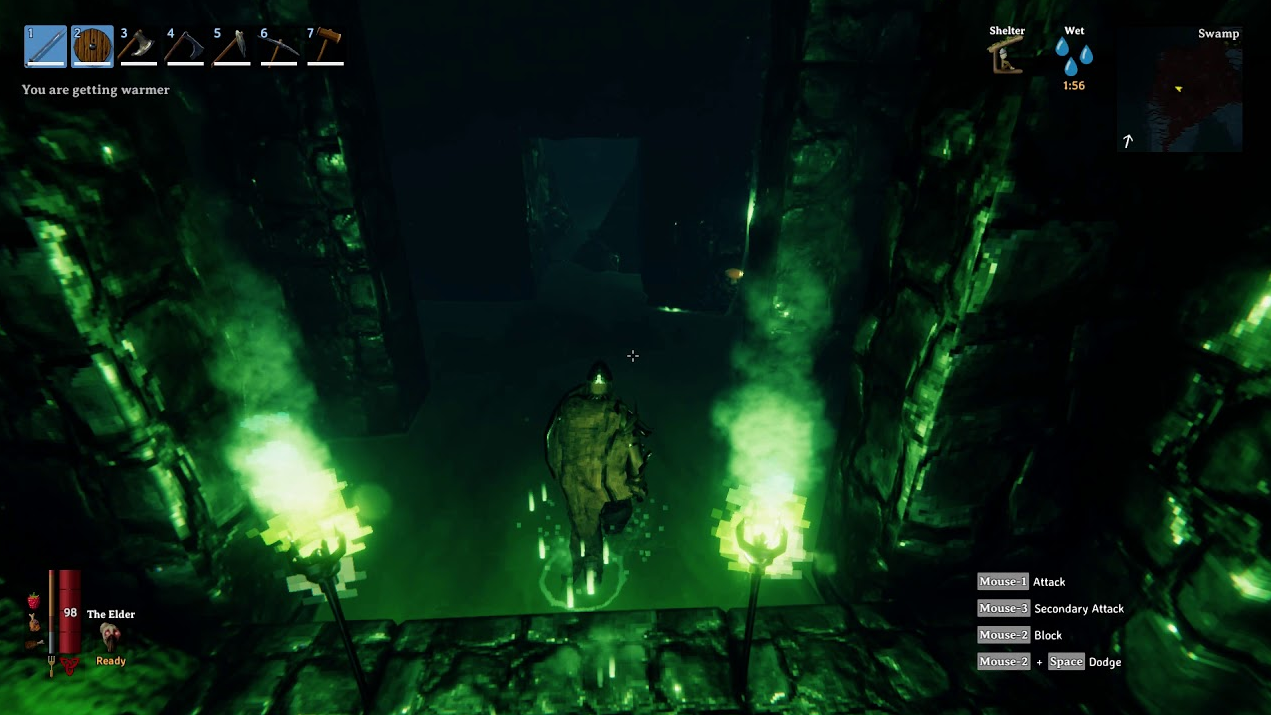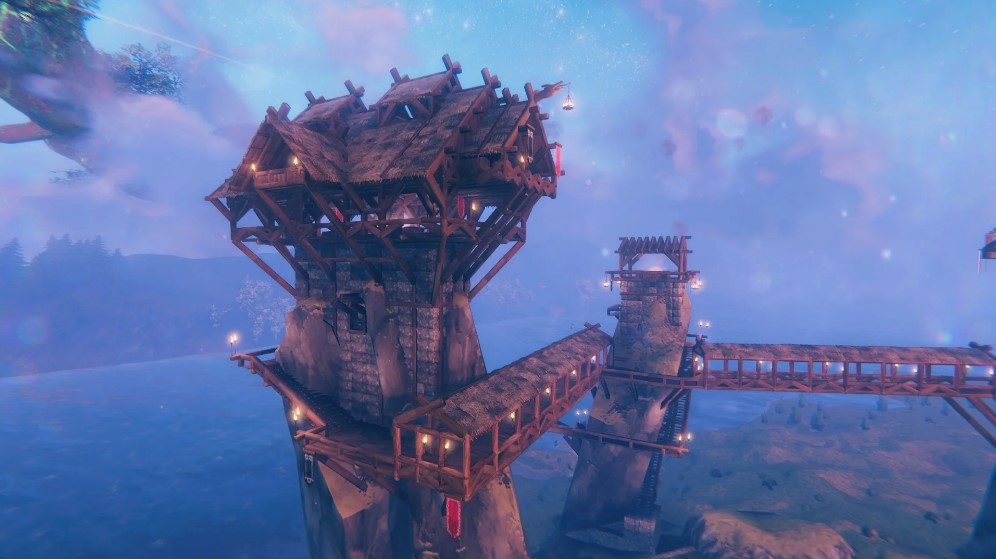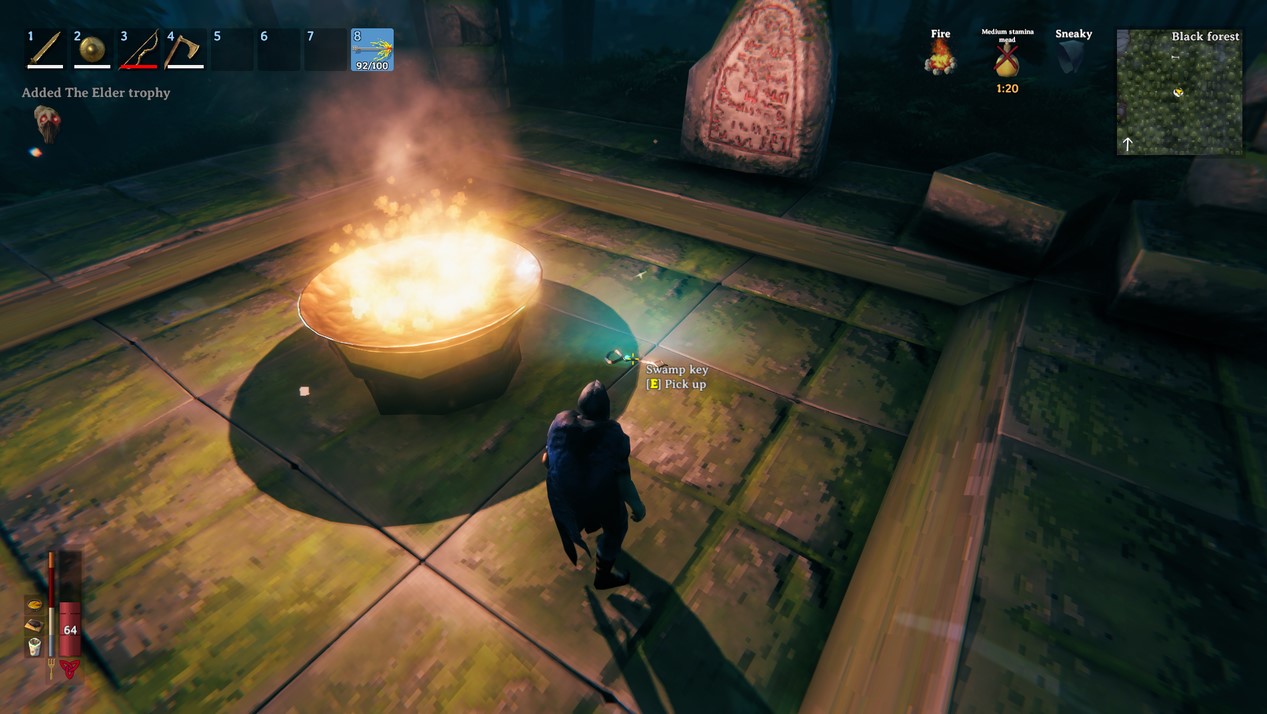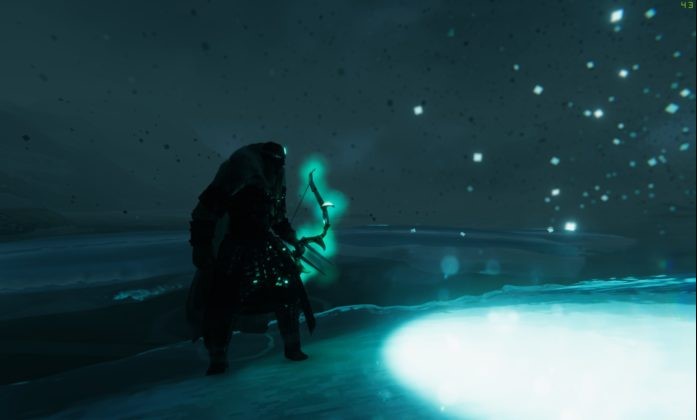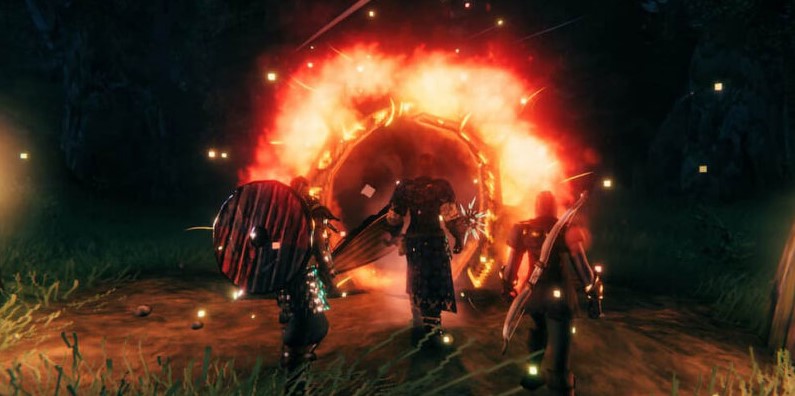
An unexpected boom in popularity has raised this Viking survival game to the masses, but is the game really as mighty as Thor himself?
During the global pandemic, many AAA titles have dropped from the (socially distant) hands of developers and big studios, and while many expected these big names to pump out amazing, highly marketed masterpieces, it takes a wonderfully puzzling turn when an early access game swept the community in a Viking fueled expedition frenzy.
While being early access, it has things going for it that anyone can pop on in and play and still get a meaningful experience out of it, and as someone who only does Minecraft as anything close to this game, it’s also a good idea for me to share what I have learned about how this game does, in its current state, so strap on your pointy steel hats and stroke that beard, because we will be going in Valhalla! (or Steam rather).
About Valheim’s Story
With such a broad premise with Valheim’s background setting, you’d be interested to know how the story of this game plays out, right? Except for the fact it has no story… well, apart from the opening Star Wars-like text scroll when you start with your new character. Once you get past the character selection with limited presets to how your Viking looks, you’ll be greeted with the opening text sequence, and eventually see your character being slowly dropped by a huge bird that acts as your Nordic Uber towards your destination, never to be seen again. After a nice superhero landing, a crow named Hugin greets and welcomes you towards your new journey and babysits (sometimes blocks) your path to your actual quest; to gather all 5 boss trophies (their heads basically) and pointing out discoveries you make in your gameplay.

About Valheim’s Gameplay
Once you do start by marking the first boss, Eikthyr, at the start of the spawn, you’re free to roam around, expand your map and gather resources. The start of your game is dependent on what seed is given to you as it can affect how easy navigation towards biomes, resources, and especially bosses. I’ve completed a small number of seeds from start to finish with a few friends, and we’ve had both, the luck of having the first few bosses be your next-door neighbor to the spawn point, and at times it can be a nightmare, with one example having all 5 bosses be on the opposite ends of the world, which adds to the fun as no run can be alike. You can immerse yourself with the soundtrack that adds to the feel of the game.

As for the actual gameplay, I’ve split it into 3 distinct points in the game, so you can easily follow on what to do:
The Beginning:
When you check your inventory for the first time, your items will be stored in a 9x4 grid, with the first row items being accessible via the numbers on your keyboard. Bear in mind that each item has a stack limit, and also adds to how much you can carry (300 weight without the item Megingjord and 450 weight with the item, to be exact), so bring only to the essentials in this sightseeing trip.
Once you do build the hammer and get new items, you’ll see what items you can craft, which is essential in getting that dream Viking home you wish to make. Do keep in mind that, you should be mindful of the foundation and structural integrity of your house as it will come crashing down like a Viking with one too many alcoholic refreshments. Since you’re starting up though, try to build a modest Viking abode that you can store things in like chests for your inventory/food rations and the ever-important campfire. No worries about symmetry as the building materials usually snap into place as long as it’s leveled with the ground, plus expansion is always available as long as you have settled in a land big enough for you to make your manor of mayhem (or farm. Either way, your house, your rules). Just make sure you don’t think about building a huge structure near, or in Black Forest perimeters (more on that later).
The Expedition:
Once you have settled in an area, built a house, and placed the essentials, you can now venture farther out yonder (with some food and gear, of course) in which your main goal is to find the spawn locations of your next beast to slay. Here is where Valheim shows its beauty.
As you go venture through the different biomes, the landscape, the prep you have, and the enemies you face change. The tameness of the Meadows becomes much safer when you realize that the Plains ain’t exactly for planting crops, but possibly a horrible badland full of Death(squitos) and Fuling (the fires) of danger to your poor Viking. Without making this much of a how-to guide, all I can say is that your spawn can give you a surround sound of survivability by understanding how far away you are from these dangerous areas when you are under-leveled or underprepared, but to summarize what to know, just be reminded of these. Again, this is an early access game, so it may change
Meadows – Usual starting area with lots of tamer mobs like deer and boar, good for any settlement. It’s also the area location of the first boss, Eikthyr.
Black Forest – A tougher area where you encounter more Graydwarfs and Skeletons. It’s also where monstrous Trolls are located and can lead to extreme damage to any structure you hide in (including that grand house of yours). The second boss, Elder resides there when you can find its spawn point.
Swamp – An area that constantly rains, giving your character a debuff and makes traversing harder as you encounter poisonous leeches and Dragurs (think undead knights). One of the most important materials, Iron, is located here so you’ll return to this area more often in the midgame. The third boss, and arguably, toughest one, Bonemass, is found here.
Mountains – Snowy and at times in a blizzard, one of my favorite biomes, but also one of the most unforgiving as Wolves (and a scarier looking one, Fenrir), Drakes, and Stone Golems reside here. The moment you dive deep into a mountainside, without a way to protect you from the cold (potions or a spare cape), you can most certainly kiss your items goodbye. The fourth boss, Modor, lives here.
Plains – The fifth and final biome to explore is the plains. It’s usually wide and open, but that also gives you a false sense of security as dangers like the Deathsquito, Lox, and Fuling (Goblins basically) can instantly kill you if you have little health and armor. Again, if you aren’t careful, you can lose some valuable stuff here. Also home to one of the coolest looking final boss areas (as of the current version), Yagluth is found here on his spawn which is a gigantic, freaking hand (dead serious.)

The great thing about it is once you found an area of great interest, you can use a portal to teleport from that location, to where you put the other end too, as long as you don’t have metal ores in your inventory (but your weapons can go through, despite being metal themselves, logic right?)
There are many other biomes, like the Ocean that cuts across these areas. There are also work in progress biomes called the Ashlands, a volcanic looking area with flame-like creatures, known as Surtlings are found, as well as the Mistlands, a pretty spooky place that you can explore (if you wish to see big skulls on the ground and spider webs) though both are currently barren with plans for a future update by the devs, on its content and honestly, I can’t wait for it.
The Bosses and Endgame:
If you want to see what these bosses do, or want to check what can kill your character into a hilarious ragdoll flop, then check the video about the bosses through the video below.
We’ve already touched on how each biome has its corresponding bosses, but how does one find them? Well, as soon as you land, you can see a square-ish stone marking the first one, and similar ones are found near structures/areas of their corresponding bosses. Not all spawn areas/marker locations are in the same patch of land, so it’s common to find a marking that shows a boss located a whole equator away so you better need to get to walking (or boating if it’s on the large ocean).
As soon as you find one, it will mark the boss’ spawn on the map, and you need to prep the necessary weapons and items (and friends you have) to slay them, but that’s easier said than done. There are prerequisites needed to spawn the bosses, and they don’t give it away, as they tell how, in riddles, but thanks to the internet, and forums about the game, we can learn what they are as they are everywhere. With each boss, comes with sorts of challenges as they have their immunity to varying weapons/stats, and careful management (or if you have the stats, brute force) is key to killing them and obtaining helpful items that can make the next biome you traverse more meaningful and helpful to your exploration.
Now, what happens, after you have slain every known boss in Valheim? Honestly, nothing. No credit sequence, no congratulatory screen, and not even a Viking house party to celebrate your awesome prowess. Just pick up the loot and contemplate on what to do next.
You have two options to continue your Viking fix, either you make a new world and start over again (you can use the same character if you want to keep the loot you gained on the next gameplay) and speedrun the bosses you’ve done, or join the public lobbies and create more amazing structures you can think of. Either way, that’s pretty much a somewhat simplified overview of the gameplay, with a more in-depth explanation happening in-game, so enjoy it at your own pace.
Valheim Combat System
Combat is pretty straightforward with Valheim, as the left click is to attack and right-click to block, and some weapons even have a charged attack that is done using the middle click (or hold left click for bow and arrow users) for that all empowering thrust of pain. There are no classes here, so you can either use a sword and shield, channel your inner Robin Hood by using specialized bows and arrows, or maybe go head-on and wield a powerful two-handed weapon, to defeat whoever is in front of you, all of which require stamina.
Speaking of the stamina system, the food, items, and boss buffs you take can affect how much stamina you have, and it makes the difference between kiting around by tumbling, ala Dark Souls, to accepting death like a deer onto, well, hungry Vikings. If anything, spend how you move wisely, as stamina is vital in crossing the mountain to trying not to drown in bodies of water (a lesson I learned the hard way), so a tip for you energetic Vikings? Save it to survive.

There is a stats overview for you to check how your character is holding up and to level that skill (up to 100), you’ll simply need to do more of what stat does (i.e Block more to level up Block), that will help you tackle stronger enemies as you progress.
Also a small side note, there is a toggle for PVP on/off so you can enable friendly fire between you and your friends that have also enabled them. Grief responsibly lads!
Valheim NPC
Well, truth be told, it’s just you and the world around you (unless you play with people on a server), with the only interactable NPC being Haldor (and his nice pet Lox, Halstein) serving you wares like the previously mentioned Megingjord, a belt that lets you carry 50% more weight in items than normal, as well as some simple stuff like bait for the fishing rod you also bought from him, and even a Christmas hat (for when it gets festive at the end of the year).

There are also some nice callbacks to other people of Norse mythology that you’ll probably see from time to time, like Odin, as a shadowy hooded figure that disappears when you go near him, or Thor, as he flies through the sky with ease using his Mjolnir as the lightning glows his path. So far that’s about it for NPC’s so maybe there will be more to come in the future, or at least, maybe when the devs find a way to get Loki out of the multiverse, he’ll also be there.
About Valheim’s Graphics
On the video below, Valheim on the graphics front isn’t visually the best-looking game on the character model front, with it looking mostly like a PS1 or early PS2 game, but the environment and landscape look amazing and as the settings crank up and the weather effects like rain kick in, you’d begin to see why this game has a nice charm to it. Honestly, in the world of raytracing and fancy life-like visuals, we’ve forgotten that something simple and more scaled back is what can give a relatively straightforward game, such character. If you were to play this on, say 1080p low, it would still look great, but as with most games, the higher the GPU power you have, the more you can give it a nicer feeling playthrough with everything going around it. Up for a nighttime Viking gondola run anyone?

About Valheim’s Developer
While I give so many positives about Valheim, the games’ early access nature is pretty much open to buggy experiences, and oh boy, the bugs do be tanking your frames. Iron Gate Studio is aware of the bugs and is very great at listening to the requests of the community and that fixes and optimization will happen as the game gets further developed, which is great news as the experience can be choppy when things get too hectic.
I touched on how this game can be played with people (max of 10 per server), and with it, comes some struggles for this, visually, simple game. If you consider building a town in this game, then prepare to see frames dip harder than nachos on a cheese fountain. When you factor in fireplaces, kilns, forges, terrain loading, and many more into a condensed area, the beautiful high frames you see will turn into a slideshow animation in no time. Like the pandemic, if you and a few Viking pals do build houses, keep it somewhat socially distant so that every visit doesn’t make your poor CPU suffer. Also be mindful of how far away you are to each other as the scavenger you have on the far north, can cause lag to everyone else fishing by the south. So to those opening a server to all of Viking-kind, your CPU and network will be quite busy.
Valheim Price
As an early access game, Valheim currently costs $19.99 but may be subject to change when a release date comes. There are no paid DLC’s so far and future updates will be announced by the company whenever possible.
Final Verdict
I did this review the same way I was introduced to it, as generalized as possible, as to not spoil the fun of what this game has to offer. For an early access game, Valheim has good solid foundations for hours upon hours of fun, with runs being different from each other based on the seed you have and the number of players who will join your campaign.
When you get past the occasional stutters caused by the unoptimized parts of the game or sheer quantity of items and mobs spawned in an area, Valheim is a great casual start to anyone wanting to play survival games, and even if you are not hunting serpents of the sea and big boss baddies, you can place your zen towards building what your imagination (and game) limits it to be, so you can gaze upon the tree of Yggdrasil. A toast to Valhalla, as I score it a 9/10.
Pros
- Very straightforward objectives
- Massive amounts of fun with other people
- Seeds generated can give variance to every gameplay
- Great soundtrack to accompany the game
- Amazing weather effects that help gameplay immersion
Cons
- Frame dips due to unoptimized things that can affect your gameplay in the wrong situations
- No NPC’s to give you more quests after finishing the main objective
- Relatively grind-intensive to get higher-end materials for upgrades

